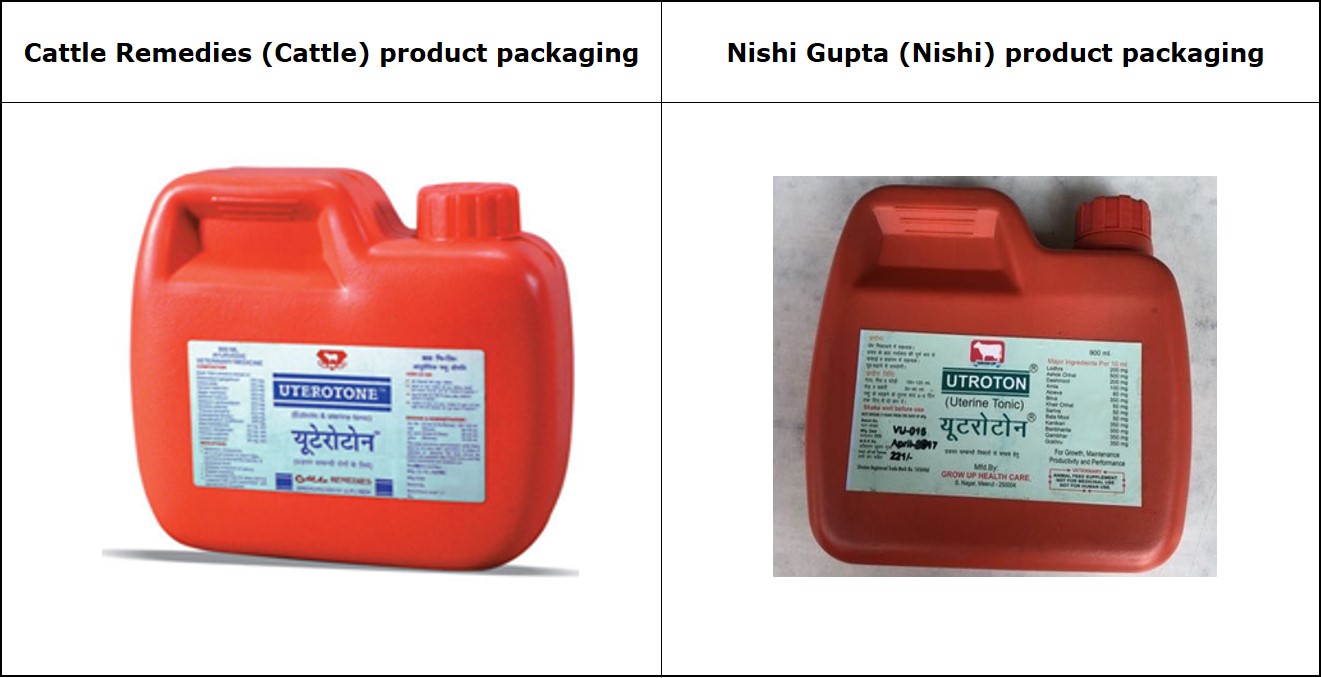Court pulls up petitioner for making false claims
Cattle Remedies (Cattle), registered proprietor of the mark UTEROTONE had filed rectification proceedings before the Intellectual Property Appellate Board (IPAB) for removal of the mark UTROTON in the name of Nishi Gupta (Nishi). IPAB ruled in favour of Cattle, and cancelled Nishi’s registration for UTROTON.
The post discusses Appeal filed by Nishi (in the form of writ) at the Delhi High Court to challenge the decision of IPAB. The Court on noticing the similarity of marks and product packaging came down heavily on Nishi for making false claims to support its adoption. The images of the rival products are appended below:

The High court Ruling
The Court after considering the pleadings, arguments and case laws, held:
- Documents on record evidence that the UTEROTONE mark adopted in 1968 have been continuously used and registered in Class 5 since 1991.
- The adoption of the trademark UTROTON is dishonest, which is evident from the fact that Nishi has adopted identical cans for packing and a deceptively similar artistic label.
- Trademark registration being a matter of public record, Nishi had constructive notice of Cattle’s registered trademark UTEROTONE and its exclusive rights.
- Goods under the rival marks are used for nearly identical purposes having common trading channels and buyers. Further, ‘veterinary preparations and dietary supplements for animals’ fall in Class 5, and the contention that UTROTON is registered in class 31 will not succeed.
Court on noticing clear copy and infringement issued strict warning to infringers
- The greatest challenge before the judiciary today is frivolous litigation which consumes Court’s time for a wrong cause. There is a trend in recent years where litigants, particularly defendants, urge falsehoods in trademark infringement proceedings whereby well-known national and global brands are copied with impunity. Further, fictitious, and fabricated reasons are put forth in the written statement to explain the adoption of an identical or similar trademark.
- The unscrupulous infringers stall speedy disposal of cases, and the Court has to spend time examining the veracity of such claims. False pleadings have a debilitating effect on the strength of IP enforcement and adjudication system in India, which in turn tend to shake the confidence of brand owners in the justice delivery system.
- The Court pointed out that section 209 of the Indian Penal Code provides an effective mechanism to curb frivolous litigation and discourages litigants from making false averments in pleadings. The Court recommended use of the provision to deal with false claims made in the pleadings.
In view of the above, the High Court dismissed the writ petition and issued show cause notice against Nishi for raising false claims under Section 209 IPC.



